What are the differences between new professional farmers and traditional farmers? Where is the "new"?
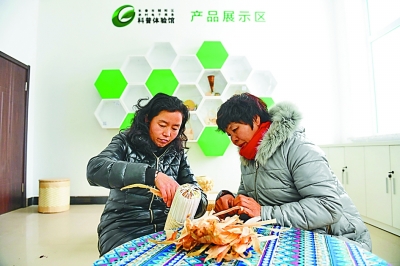
Wang Lipeng (right), a new professional farmer, and villagers created straw crafts in Huizhen Farmers’ Professional Cooperative in Leshan Village, Leshan Town, Chaoyang District, Changchun City, Jilin Province. Xinhua news agency
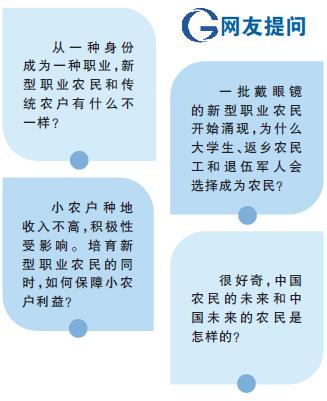
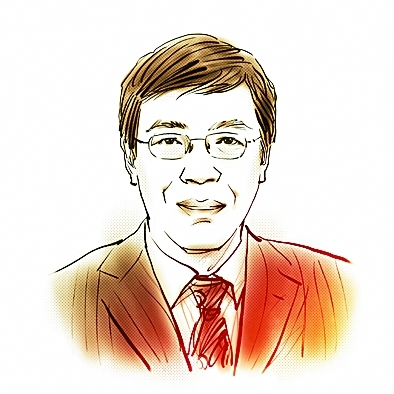
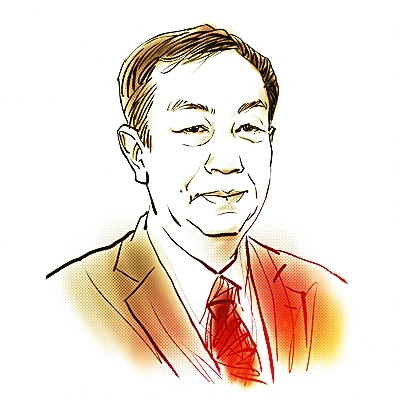
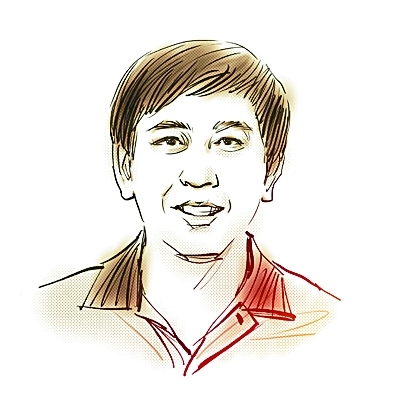
[Focus on Rural Revitalization Series Interview III Think Tank Q&A]
Guest of this issue
Executive Dean, National Institute of Development and Strategy, Renmin University of China Yan Jinming
Researcher, Institute of Rural Development, China Academy of Social Sciences. Dang Guoying
Dean, School of Public Administration, Huazhong Agricultural University Zhang anlu
1. New professional farmers, where is the "new"?
Bright think tank: new professional farmers are the new driving force to promote rural revitalization. Where is the "newness" of the new professional farmers? What is the current situation of cultivating new professional farmers?
Yan Jinming:New professional farmers refer to modern agricultural practitioners who actively adapt to the needs of modern agricultural production and industrial development, mainly rely on agriculture and related industries to earn income, and take farming as their profession. Its basic requirements include: having certain cultural and scientific knowledge, mastering modern agricultural production skills, being full of independent innovation and entrepreneurship, having professional accomplishment and social responsibility. Compared with traditional farmers, the new professional farmers are "new" in the following points: they have advanced ideas of modern agricultural production and management; Have the ability and quality required by modern agriculture; Can get higher income, is the successor and pioneer of new agricultural production.
At present, with the increasing efforts of the state to cultivate new professional farmers, a large number of outstanding talents have joined the ranks of new professional farmers. The data shows that the total number of practical talents in rural areas in China currently exceeds 20 million, including more than 15 million new professional farmers. At present, the cultivation targets of new professional farmers include not only young and middle-aged farmers, but also large agricultural machinery households, leaders of rural cooperatives, leaders of rural practical talents and modern young farmers. At the same time, according to the actual needs and different training objectives, the government has also focused on strengthening the cultivation of different types of agricultural talents such as production and operation, professional technology and social service, and further optimized the new professional farmers’ talent team.
Dang Guoying:Cultivating new professional farmers is one of the important tasks to realize rural revitalization. Professional farmers in a broad sense refer to practitioners with high degree of specialization in the whole agricultural industry chain. In general, professional farmers refer to the direct producers of agricultural products with relatively large scale of operation, mainly family farmers. Professional farmers in any sense are different from small farmers in the traditional sense, and their characteristics are as follows:
Engage in production and business activities facing the market. The new professional farmers are highly dependent on the social division of labor and carry out production and management for the vast market, rather than self-sufficiency. As the main body of the market, the new professional farmers must have the consciousness of cost accounting, brand building and market risk, and face the competition not only in the domestic market, but also in the international market.
The business scale is relatively large. Especially in the field of agricultural products circulation, service and processing, the scale of operation of practitioners is very large, even comparable to that of multinational companies, which is enough to reduce the production cost to the level of market competitiveness. Based on the reality of our country, it is reasonable to define the average household management scale of grain production (about 10 mu) as 8 to 15 times as much as it is now. With the continuous improvement of urbanization in China, this scale can be gradually increased, but the moderate scale of vegetable and fruit production can be smaller.
Relying on modern agricultural management organization system. From the international experience, in most areas of agricultural production, "giant cooperative+specialized family farm" is the most competitive agricultural management organization system. On the one hand, this model will improve the competitiveness of cooperatives, on the other hand, it will allow groups to share the benefits of agricultural industrial chain. In developed agricultural countries, if there is no such mechanism, it is difficult for ordinary family farm operators to survive.
More and more environmentally friendly technologies are adopted for production and operation. The proportion of organic agriculture in developed countries generally does not exceed 10%, but most of them attach importance to the use of environmentally friendly technologies and ensure the safe production of bulk agricultural products.
Form a "golden triangle" with the government and agricultural scientific research institutions. Agricultural production and management system, agricultural scientific research institutions and government are the key supporting structures of agricultural modernization, and they form a benign interactive relationship. In the future, new-type professional farmers will be the main body of innovation to promote agricultural modernization, and agricultural scientific research institutions and the government will help professional farmers acquire applicable technologies, reduce various risks and stabilize market expectations.
Zhang Anlu:The "newness" of the new type of professional farmers is reflected in the following aspects: it is the main body of new agricultural management, agricultural professional service and agricultural management, and it is necessary to understand both management and management, and to provide socialized services for agriculture; It is the master and disseminator of new agricultural knowledge. Only by mastering the knowledge of biotechnology, computational science and modern management extensively can the competitiveness of agriculture in the international market be improved. It is the user and inventor of new technology, new varieties and new skills. Without new technology and equipment to arm modern agriculture, it is difficult to achieve economies of scale, and without new excellent varieties being cultivated and popularized, it is difficult to improve market competitiveness; It is an innovator of the new modern agricultural format. The new professional farmers integrate the production, processing and marketing of agricultural products, and integrate the production of characteristic agricultural products with rural eco-tourism, making agriculture a multifunctional new format integrating planting, tourism and education.
At present, the training of new professional farmers in China has developed rapidly. On January 29, 2017, the Ministry of Agriculture issued the "Thirteenth Five-Year Plan for the Cultivation and Development of New Professional Farmers in China"; On May 9, 2017, the Ministry of Agriculture selected the first batch of 100 national demonstration bases for cultivating new professional farmers; On October 26, 2018, the National Forum on the Development of New Professional Farmers was held in Jinan, and the 2017 National Report on the Development of New Professional Farmers and the Development Index of New Professional Farmers were released. The policy support system for cultivating new farmers has been gradually improved.
2. The team needs to be formed and faces "growing pains"
Bright Think Tank: What are the problems facing the development of new professional farmers at present? How should we get rid of these constraints?
Yan Jinming:At present, the development of new professional farmers is facing "growing pains" such as lack of supporting policies, imperfect cultivation system, imperfect supervision mechanism and the need to improve the cultivation effect. There is a lack of strong support in population mobility, household registration policy and land policy. A complete new professional farmer training system has not been established to meet the training needs of different levels. At the same time, the teaching staff is relatively weak, and the cultivation effect needs to be improved.
In this regard, we should further establish and improve the policy support system and management system for cultivating new professional farmers. It is necessary to standardize the training content, improve the curriculum system, innovate the training mode and implement batch classification training; Further strengthen the evaluation of cultivation quality and effect, and build a new evaluation system for professional farmers’ cultivation; Strengthen the construction of teaching staff.
Dang Guoying:The growth of new professional farmers in China is facing some basic and systematic problems. In agricultural production, small farmers are still the mainstay. Although many small farmers in the main agricultural producing areas are no longer working directly in the fields, they are still land contractors, and the non-circulation of land will limit the improvement of land scale management level; The modernization level of China’s agricultural management organization system is still low, and the scale is generally small, which has a very limited effect on increasing farmers’ income; The level of scientific and technological equipment of farmers in China is generally low, so it is urgent to establish a high-level scientific and technological extension system so that farmers can learn more practical technologies. Although we have good agricultural universities, they belong to different systems from the basic agricultural technology extension system, which is not conducive to the cultivation of new professional farmers; China’s current land system is also not conducive to the growth of new professional farmers. From the survey, on the one hand, the high expenditure of land rent is not conducive to land circulation, on the other hand, the contracted right of agricultural land cannot be open to the residents outside the village, which affects the enthusiasm for investment and circulation; The transfer of agricultural population to cities still faces multiple obstacles. For example, the lack of diversity in urban planning and design, ignoring the necessity of moderately mixed living, has increased the living cost of low-income migrant workers in cities, made it difficult to break the rigid connection between a large number of rural population and small plots of land, and compressed the growth space of new professional farmers.
Deepening rural reform in an all-round way will help promote the growth of new professional farmers in China. First of all, further improve the level of urbanization, reform the urban land planning and management system, improve the urban living form, and facilitate rural residents to move into cities. Secondly, deepen the reform of rural land system, explore ways to allow secured financing of contracted land management rights, reduce the level of land rent, and improve the enthusiasm of agricultural investors to increase land productivity. Thirdly, vigorously support farmers’ cooperatives to achieve cross-administrative development and establish a long-term mechanism for family farms to share the income of the whole agricultural industry chain. In particular, it is necessary to guide qualified large-scale agricultural leading enterprises to transform into modern farmers’ cooperatives. Finally, an agricultural science and technology development and extension system with agricultural university as the main body is established, and the existing agricultural science and technology extension system is incorporated into it.
Zhang Anlu:The comprehensive quality of new professional farmers needs to be improved, especially in basic education, market acumen and innovation consciousness, which is far from the development requirements of modern new formats; Low social recognition and imperfect basic public services and welfare in urban and rural areas; There is a contradiction between the present situation of finely divided land property rights, finely divided plots and decentralized rural organizations and the requirements of scale, centralization, organization and specialization of modern agricultural management; There is a mismatch between supply and demand between the individualization of continuing education and training needs of new professional farmers and the homogenization of curriculum setting in higher agricultural universities and training institutions; The lack of agricultural extension talents in colleges and universities and the lack of government agricultural extension institutions make the channels for professional farmers to obtain new technologies not smooth enough; The development of rural credit market and land market is relatively backward, which makes the development of professional farmers face the bottleneck of funds and land.
In order to break through the above bottlenecks, it is suggested to establish a diversified training investment mechanism combining government, enterprises and society, and increase the training of professional farmers; Increase media coverage of professional farmers, gradually eliminate the obstacles of dual system, and implement equalization of basic social welfare; Accelerate the registration of contracted land and the registration and certification of homestead use right, improve the rural property rights transfer market, create basic material conditions for the large-scale operation of new professional farmers, and solve the bottleneck of insufficient funds; Reform the evaluation system of teachers in agricultural colleges, encourage teachers’ individualized development, establish three teachers’ teams of teaching, scientific research and popularization, and reform the teaching content; Gradually improve rural agricultural technology extension stations, build practical technology, information dissemination, agricultural forecasting and early warning networks, help new professional farmers quickly master new technologies, and effectively guard against various risks.
3. Whether you can become a new professional farmer depends on your ability and quality.
Bright Think Tank: Many netizens reported that compared with the existing farmers, it is more likely that college students, veterans and other groups will take the lead in becoming new professional farmers. What do you think?
Yan Jinming:The Opinions on Implementing the Rural Revitalization Strategy proposes that to implement the rural revitalization strategy, we must break the bottleneck of talents; We should vigorously cultivate new professional farmers; Strengthen the construction of rural professionals; Give play to the supporting role of scientific and technological talents; Encourage all sectors of society to participate in rural construction. As an important task of implementing the rural revitalization strategy, the cultivation of new professional farmers must aim at the cultivation of rural farmers, but at the same time, we should encourage all sectors of society to participate in rural construction, focusing on cultivation and introduction. College students and veterans have a high level of cultural knowledge, and training them in agricultural professional knowledge and skills can help them enter the role of new professional farmers quickly.
Zhang Anlu:College students and veterans have their own advantages compared with other groups. They have an inherent attachment to their hometown, and the experience of studying and wandering in other places is helpful to bring good experiences home. However, whether they can become new professional farmers depends on whether they have the basic qualities and abilities that new professional farmers should have.
4. The relationship between new professional farmers and small farmers is point and surface, pioneer and drive.
Bright Think Tank: What is the relationship between new professional farmers and small farmers? In the interest linkage mechanism of "farmers+cooperatives" and "farmers+companies", how to ensure that farmers’ interests are not infringed?
Zhang Anlu:The relationship between man and land, urban-rural structure and rural social form in China determine that large-scale management and decentralized management, small farmers and new professional farmers will coexist for a long time to come. There is no structural contradiction between the interests of new professional farmers and small farmers, but they can coexist and complement each other. First of all, the scientific management and management mode of new professional farmers and the high income brought by it can provide demonstration and reference for small farmers; Secondly, small farmers can make full use of the high-quality professional skills services of new professional farmers to solve their own problems of labor and technology shortage in busy farming season; Thirdly, small farmers can learn from the refined management of new professional farmers, the cultivation and planting of characteristic agricultural products, and improve production efficiency; Finally, small farmers can guard against market risks through contracts and agricultural insurance.
Yan Jinming:The relationship between new professional farmers and small farmers is point and surface, pioneer and drive. Small farmers are the basic unit of agricultural production in China and the stabilizer of economic and social development. At present, the management mode of small farmers is still the main organizational form of agricultural production.
The combination of "farmers+cooperatives" and "farmers+companies" mainly revolves around farmers’ contracted land, and the fundamental interests of farmers are precisely the contracted land. The newly revised Rural Land Contract Law has clearly put forward the separation of ownership, contracting right and management right of contracted land. The ownership belongs to farmers collectively, and farmers have the contracting right and management right, and they can transfer the management right to cooperatives or companies according to their own wishes, which protects the fundamental interests of farmers’ land at the legal level. In this interest linkage mechanism between farmers, cooperatives and companies, the government should stick to the bottom line consciousness, safeguard the fundamental interests of the collective and farmers, prevent capital from going to the countryside to occupy the land, guide and organize small farmers to participate in and develop family farms and farmers’ professional cooperatives in an orderly manner on the basis of farmers’ voluntary participation in cooperatives, improve the interest linkage mechanisms such as land participation, technical cooperation and profit sharing, and build a long-term development mechanism of cooperation, mutual assistance, risk sharing and mutual benefit.
Academic support unit:The National Academy of Development and Strategy
Project team:Guangming Daily all-media reporters Jiang Zhengxiang, Wang Simin and Yao Tongwei Intern Wang Meiying